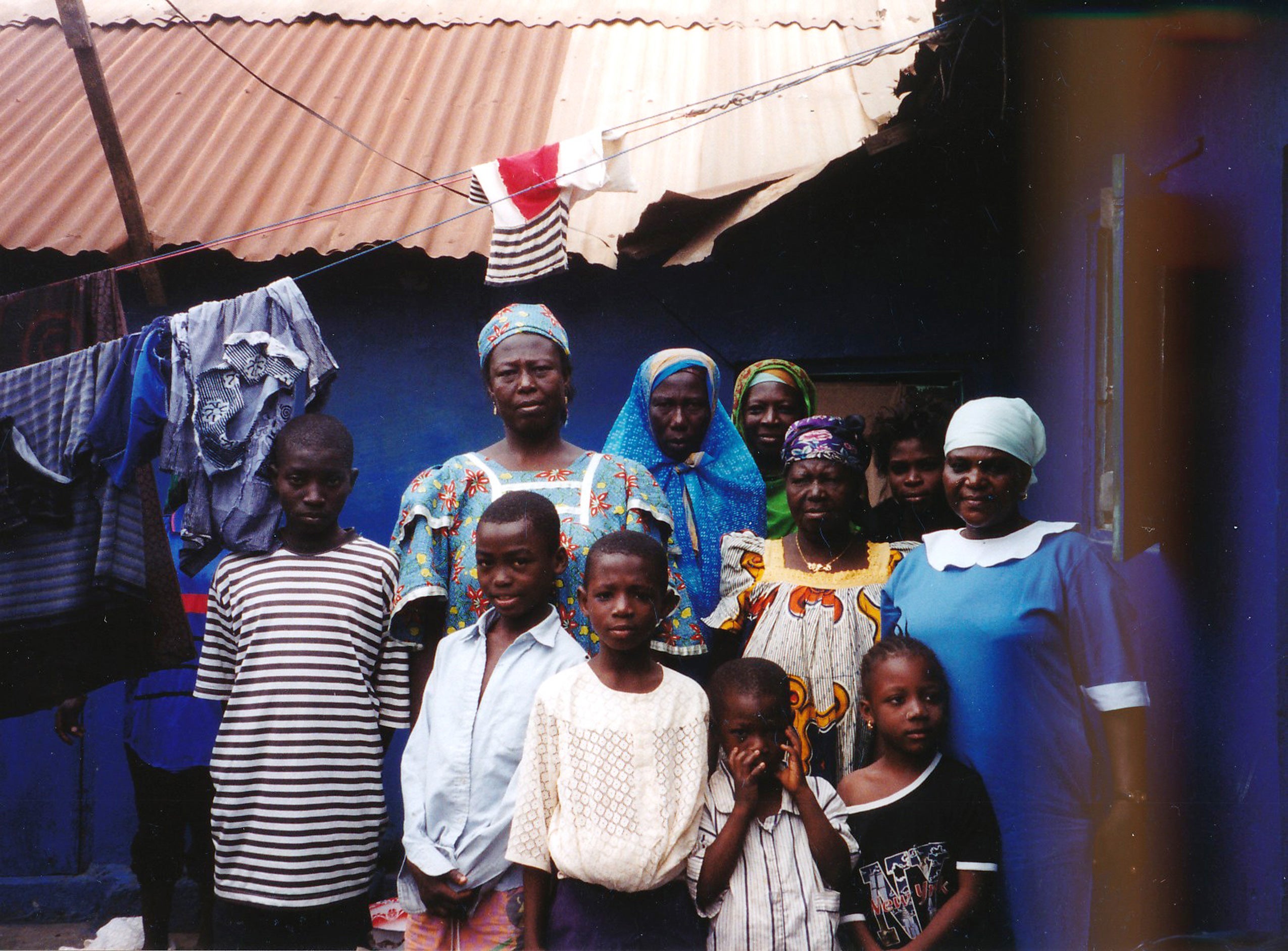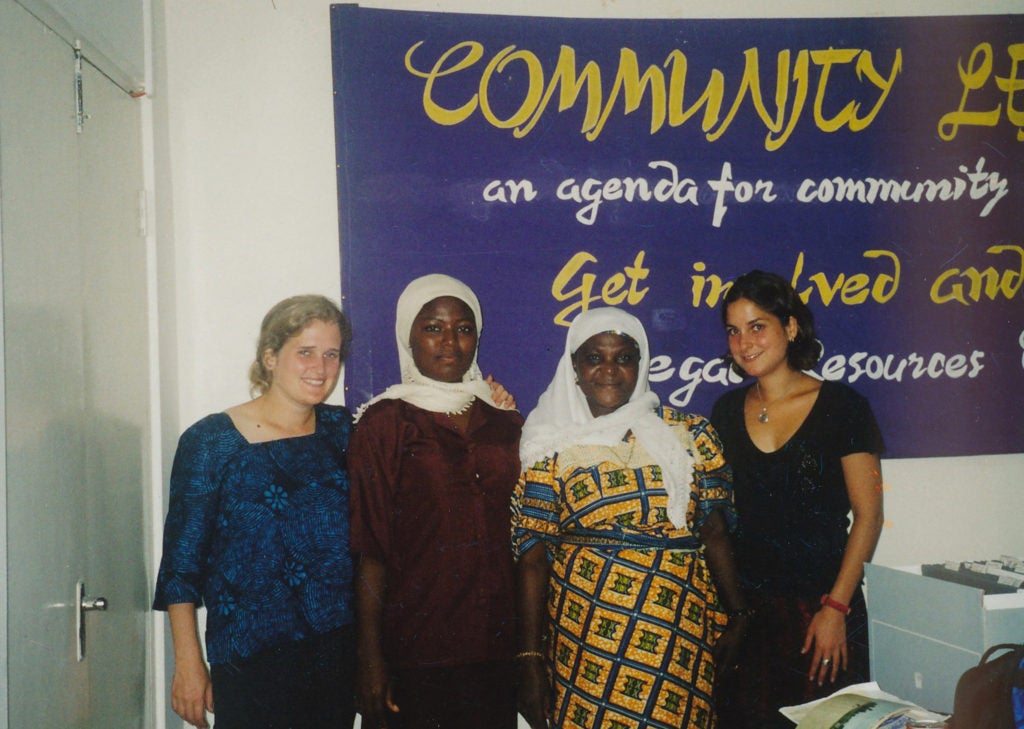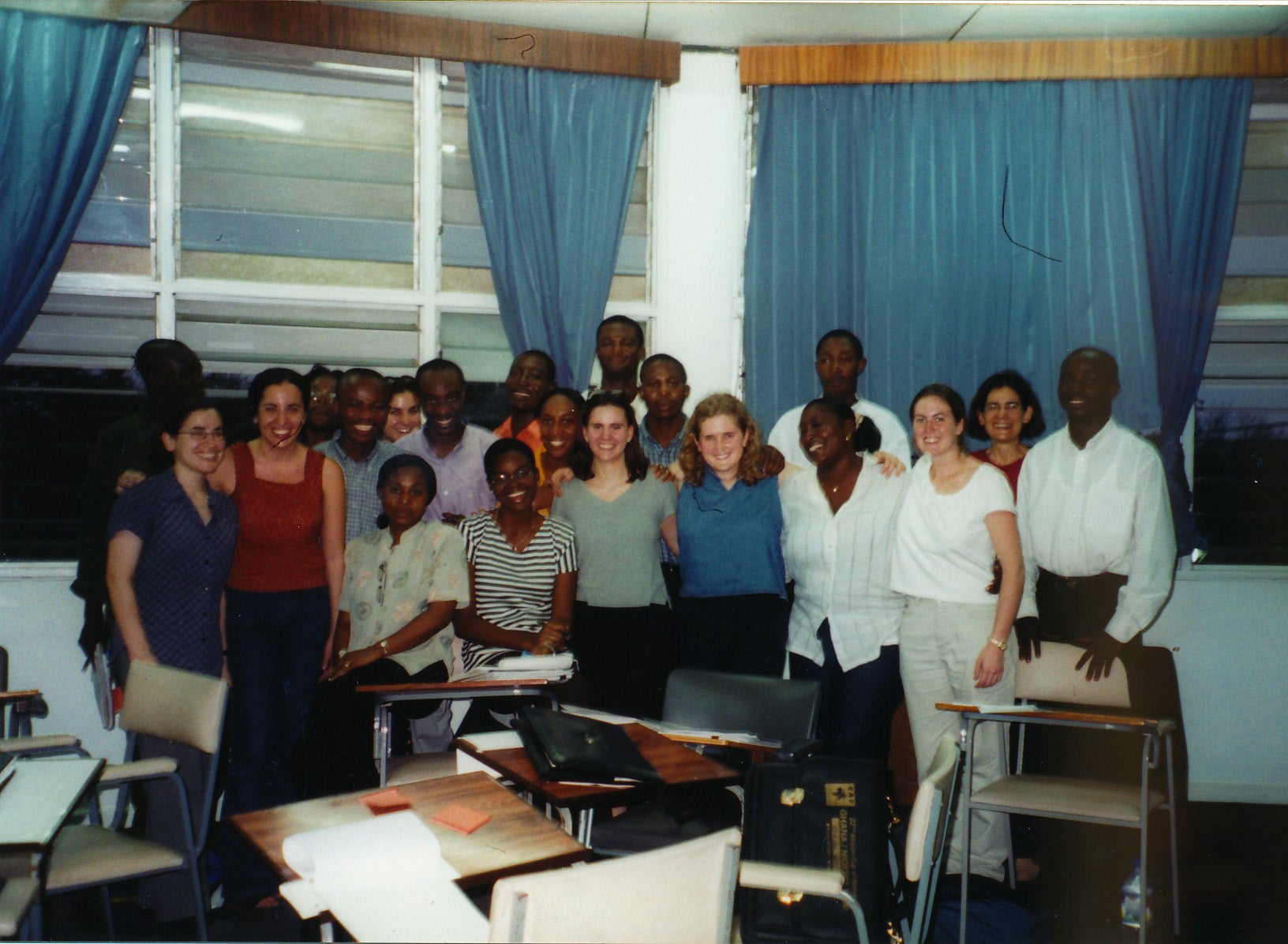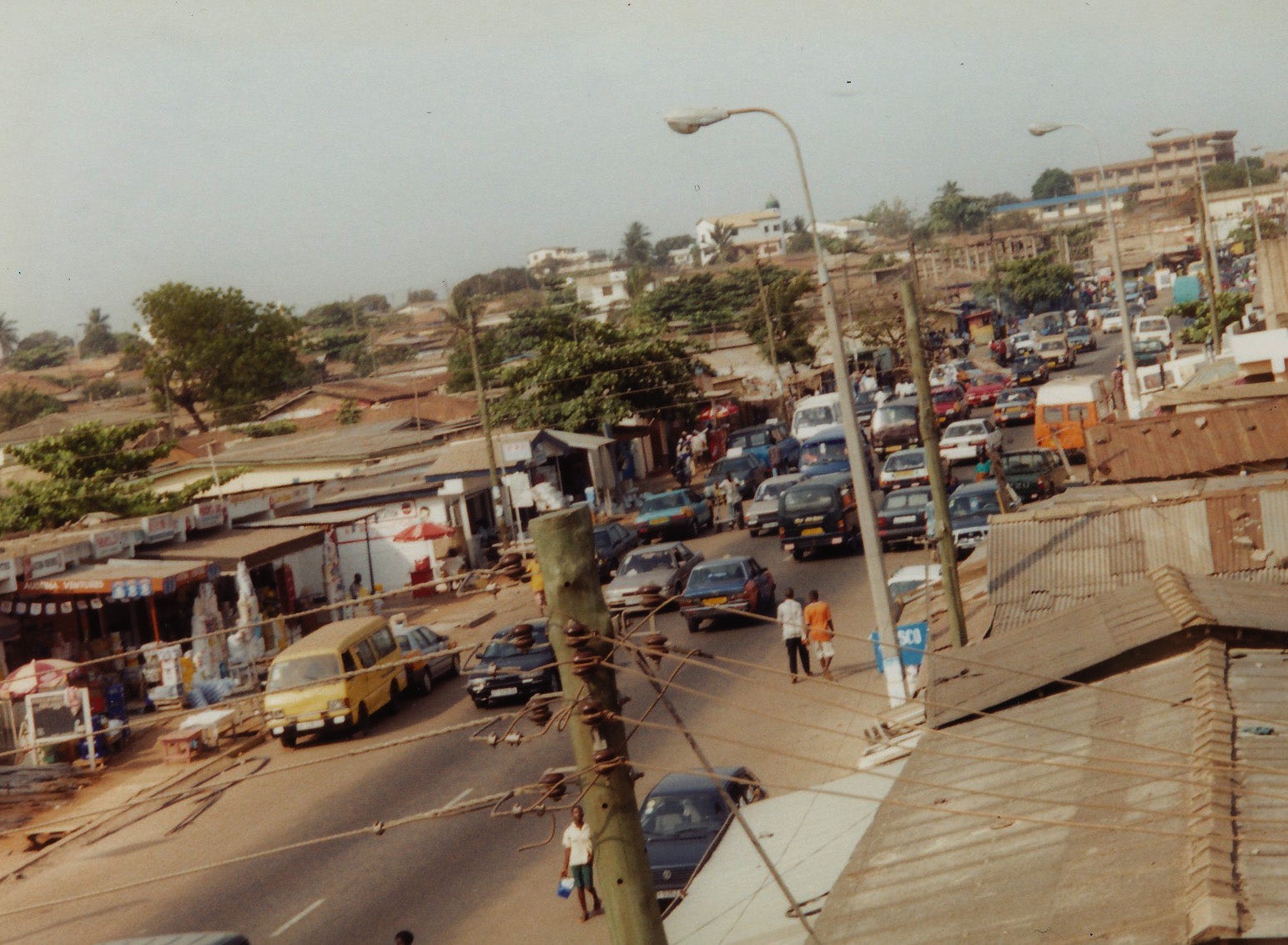In Nima, a large community in the center of Accra, Ghana, water flows through the plumbing system of a small human rights advocacy office for only a few hours each day. Professor Lucie White and some of the first students in Making Rights Real: the Ghana Project learned this the hard way. One morning they arrived at the Legal Resources Centre to find the office flooded and all of the clients’ files drenched. The previous day, a student had inadvertently left the spigot open after finding it dry. Everyone then worked together to lay each piece of paper outside in the courtyard to dry in the African sun.

That could have spelled the end of the Ghana Project. Instead, it marked the beginning of a true partnership to work for underserved Ghanaians. Sustained through mutual trust, it has now enabled more than 200 HLS students to gain first-hand experience working for economic rights, development, and social justice.
In 1999, White met Raymond Atuguba S.J.D. ’04 in Ghana. He was about to begin his graduate studies at HLS, and she was investigating social welfare issues in sub-Saharan Africa. They discussed his cases at the legal clinic he had co-founded, the Legal Resources Centre.
That conversation was the seed of the Ghana Project. Two years later, Atuguba and White took a group of students from HLS and the University of Ghana to work with the Legal Resources Centre lawyers and community members on economic and social rights like health care and sanitation.

“We were looking at what the problems were on the ground and then seeing if we could use human rights advocacy to address them” said White. “In the first few years, we focused on healthcare. We’d take 14-hour trips to the North in a little van, bumping along to places where people had been left out of the nation’s health system for lack of cash.” Through this work, the students helped the Legal Resources Centre and other Ghanaian partners launch a successful effort to improve Ghana’s National Health Insurance Law.
Sabrineh Ardalan ’02, now the assistant director of the Harvard Immigration and Refugee Clinic, was part of the first group of students to travel with White and Atuguba to Ghana and she says the experience was one of the most transformative parts of her legal education. “I learned an incredible amount from Raymond Atuguba and Professor Lucie White about creative, community-based lawyering strategies.”
With the support of the Law School, this small group initiative has since grown into a year-long class with a clinical component.
More recently, White and her students have turned to the impact of oil and gas development on oil-affected coastal communities and other low income Ghanaians. In 2013, they partnered with three organizations (Ghana Commission on Human Rights, Friends of the Nation, and the Natural Resources Governance Institute) to investigate the local impact of a new law mandating that oil industry companies hire Ghanaians, at every level, in oil sector jobs.
Through site visits and interviews with government and industry officials, job training center instructors, and community residents, organizers, and leaders, they found that the law’s objectives—and promises to the community—could not be met. The available jobs were well beyond the qualifications of the residents of these coastal communities, and a program to provide adequate training had not been put in place on the ground.
The Ghana Project’s subsequent report, submitted to the state petroleum oversight agency and the clinic’s partner organizations, helped to open up ongoing public discussion regarding the nation’s and companies’ obligations to use oil wealth to further people’s social rights.

These efforts continue with White’s current class. Says White, “We are trying to educate and activate people around issues that most directly affect their everyday lives. We’re working on complex legal questions that are being addressed at the highest levels of government. Yet the basic issues at stake are urgent for communities who need healthcare, jobs, and education now. In the Ghana Project, we take on long-term social justice challenges. Ghana has been making so much progress to ‘make rights real’ since I’ve been there. It’s a privilege to enable our students to see that and to play their own small role. And it’s been a transformative experience for me to have this opportunity.”
